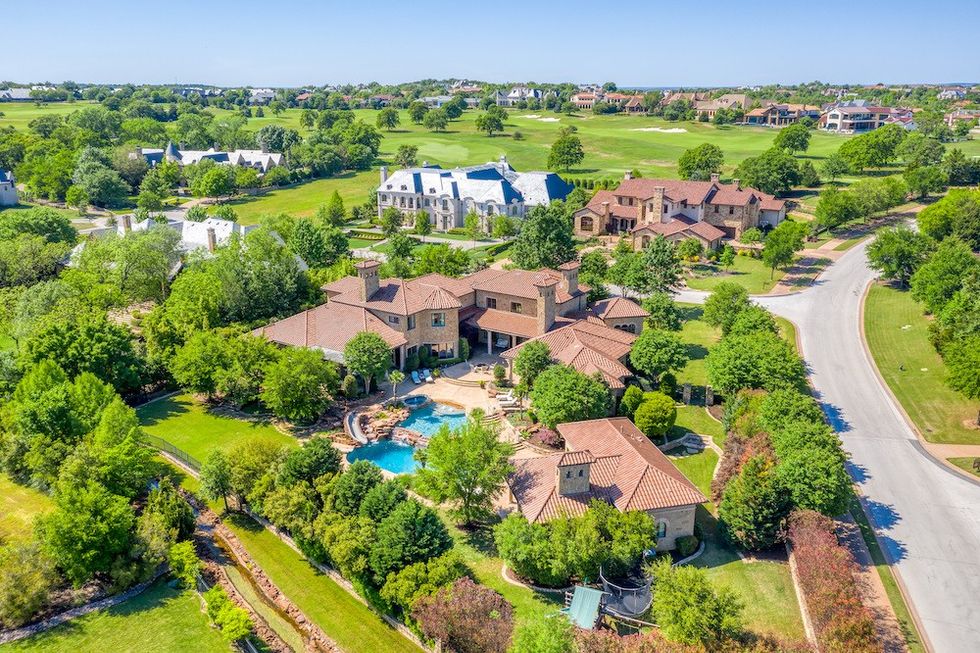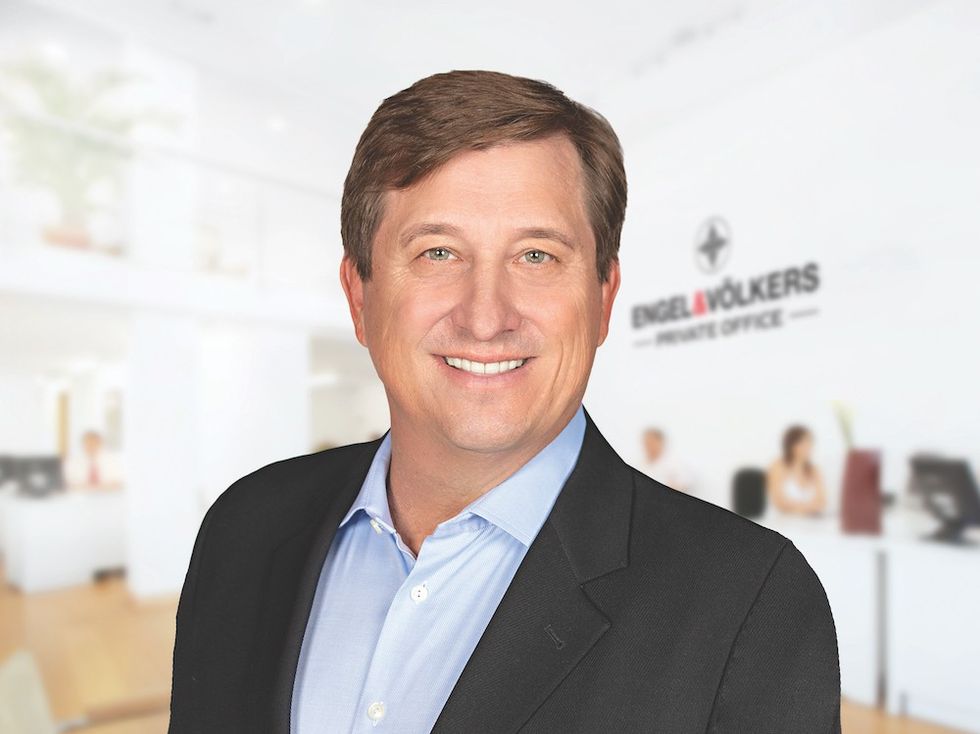What do professional athletes really want? Apparently, enough space for their growing collections of fancy cars.
The fast-paced, geographically untethered life of a professional athlete is not one many can fully understand. Especially with respect to the headline-making set of athletic superstars, unique considerations need to be granted when it comes to everything from dining out to buying real estate.
With that in mind, Engel & Völkers is scoring major points in the professional athlete circle with the recent launch of its Professional Athlete Advisory Group. Falling within the luxury real estate brand’s esteemed Private Office designation, this exclusive group of real estate professionals specializes in supporting the distinct needs of professional athletes with expertise and discretion.
The advisory group is composed of licensed realtors with a personal connection to professional athletes (like spouses or parents); those who have experience working with players, coaches, and staff; and even former athletes themselves.
According to Engel & Völkers, this select group has the direct experience required to understand the demands of a professional athlete’s lifestyle and how to best support it, while also being uniquely positioned with the brand tools and resources to meet the distinct real estate needs of this clientele. This includes working with frenetic training and travel schedules, providing family support, and last-minute relocations.

“Who better knows what these athletes’ wants and needs are -- especially when they’re being traded and moving to a new city -- than those who have lived the lifestyle?” posits Jim Bruske, one of the groups’s realtors, on a call with STOREYS from his home in Scottsdale, Arizona. “It’s comforting to them to know that we’ve been there and done that and can help out.”
No stranger to the pro athlete world, prior to working in real estate, Bruske enjoyed a 15-year career in professional baseball, which includes being part of the World Series-winning 1998 New York Yankees. Despite growing up with a realtor mother, Bruske didn’t ever think the real estate industry would interest him -- even before a career in pro baseball was in the cards. “But I stopped by a few open houses here and there and I have always been really intrigued by homes,” he says. “Not the real estate business itself, but the homes themselves.”
Inevitably, there came a time for Bruske to contemplate what to do upon retirement from America's national pastime. “I thought I was going to take some time off and play golf and relax, but I got bored two weeks later,” says Bruske. “I was talking to my wife about possibly buying an investment property in Arizona, so I thought that I better go get my real estate license then when I had the time to do so. The next thing I know, I look up 10 months later, and I’m 110% into the business, with a team underneath me. It just sort of happened. And 21 years later, here I am, managing an office for Engel & Völkers in Scottsdale.”

Bruske says his biggest concern is to make sure his professional athlete clients are getting a decent deal. “If they get traded in the next year and have to sell their homes, you want them to make money, not lose money,” says Bruske. “This is obviously hard right now in this inconsistent market. So, I need to ensure they don’t overpay. A lot of these agents will work with a pro athlete without even knowing the neighbourhood because they’re excited to work with a the person, especially on a sale that’s up there in the dollar range. They don’t think about whether their clients are over-paying, whether they're getting a good deal, whether it's a good location, whether they're going to get mobbed by the media, or whether there are good schools for their kids."
At the end of the day, its about a lifestyle, says Bruske. "That’s what we sell; lifestyles. Their lifestyle is just a little different than most.” Naturally, that means that the "must-have" list for house-hunting pro athletes is not exactly that of the typical buyer.
“Everyone is different, but if I had to pick one common must-have, it’s a great garage,” says Bruske. “These guys love their cars; they have extra cars, so that’s key. In Arizona, swimming pools are huge wants.”
Somewhat surprisingly, a home gym isn’t necessarily high on the list of must-haves. “In this day and age, there are so many facilities where professional athletes can work out,” says Bruske. “They may have their Peloton bike, a treadmill, and some weights in a certain room, but I’ve only sold one home where one guy actually brought trainers into his home to train him there. He converted his 12-car garage into something that looks like a Gold’s Gym -- it was crazy, it was really cool. I think he spent a couple hundred thousand dollars on weights. But a lot of these people, when they’re done at their training facilities, they come home and they’re normal people. They want get away from it and to come home and relax.”

Despite the geographic uncertainty associated with the job and the knowledge that their time in a particular city can be fleeting, Bruske says that these athletes prefer to buy homes than to rent them for themselves and their families.
“A lot of these clients are looking to build their portfolios,” says Bruske. “I’m working with a guy right now who is an Arizona Cayotes hockey player -- a younger guy -- and he’s young but not young for the sport. So, he’s thinking about investments. So, the house we are selling him, if he gets traded in a year or two, they will probably keep it as a rental or a vacation property. They will do well on it no matter what -- whether they sell it or keep it and hold it, or rent it out. It will be a big income generator for sure.”
Of course, acknowledges Bruske, income-generating potential all depends on the type of market we’re in. “A year ago, when sellers were just lining up offers, it wasn’t a good time for these clients to buy a house. They are going to pay more than they should, get into bidding wars, and going to get frustrated. But now, we’re back in a more normal market. The reality is setting in that buyers can’t just throw any number out there and get 10 offers. I’m not saying it’s entirely a buyers’ market, but it’s more of a balanced market for buyers and sellers.”
Bruske says he has learned a thing or two from dealing specifically with his professional athlete clientele. “You learn to keep it really discrete,” says Bruske. “A lot of agents on the other end want to know who the client is who is buying the home -- and I get that. But it’s a problem. You have to be careful to make sure they know not to tell the world who’s buying the listing. These athletes don’t need people driving by their homes. So, you need to be careful what you say to these agents. Some of them who deal with really high-end real estate get it, but others don’t know and want the bragging rights of a celebrity sale.”
Aside from the privacy factor, one of the biggest draws offered through the new Engel & Völkers advisory group is the white glove, all-in-one service.
“When we take on one of these clients, we know we aren’t just going to be their realtors,” says Bruske. “We’re going to set up their movers, cleaners, and painters; talk to their financial planners; talk to their agents -- we do everything. We’re the real estate concierge. Especially during their season, they don’t need to be bugged with questions, like, ‘should we paint this wall?,’ so we just do it at our cost. Buying and selling is a tedious and time-consuming process, so we take that stress away from them and allow them to focus on the game.”
And if there's anyone who understands the importance of focus on game day, it's Bruske. That's what makes him to relatable to his pro athlete clients who become friends.
“It’s really fun because you get to talk about what you used to do with these guys,” says Bruske of clients like fellow New York Yankees players. “It’s different to hear from the younger guys about what’s different in the game today, as opposed to when we played. I mean, I go to the games and watch them on TV and can see some of it. But you really don’t know until you’re in the locker room.”
Or, apparently, over banter when checking out a garage the size of a parking lot...





















